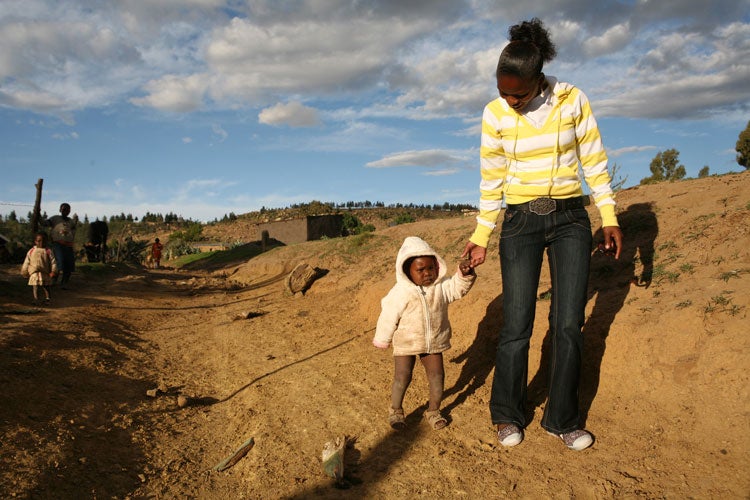Fighting Aids: Raped, pregnant, infected with HIV – and happy to help
Jemima Khan meets a remarkable health campaigner

Your support helps us to tell the story
From reproductive rights to climate change to Big Tech, The Independent is on the ground when the story is developing. Whether it's investigating the financials of Elon Musk's pro-Trump PAC or producing our latest documentary, 'The A Word', which shines a light on the American women fighting for reproductive rights, we know how important it is to parse out the facts from the messaging.
At such a critical moment in US history, we need reporters on the ground. Your donation allows us to keep sending journalists to speak to both sides of the story.
The Independent is trusted by Americans across the entire political spectrum. And unlike many other quality news outlets, we choose not to lock Americans out of our reporting and analysis with paywalls. We believe quality journalism should be available to everyone, paid for by those who can afford it.
Your support makes all the difference.What could be worse than being raped? To be raped and to find yourself pregnant by your rapist. Or to be raped, pregnant and discover you've got HIV. And for the unborn child to be at risk of contracting HIV.
Three months after being raped by her boss, unemployed and sick, 21-year-old Mathakane Metsing was in her local clinic in Mafeteng, Lesotho. There she underwent two tests.
"Two blue lines and you're pregnant", the nurse told her. "And two red lines here and you're HIV positive." Four lines – two red, two blue. In 10 minutes. Mathakane cried for two days. Worse still, she discovered that she had passed the virus on to the man she loved and wanted to marry. And later, that her family was also infected; her two sisters and her mother, who died the following year.
Two years on, and I'm sitting with Mathakane for the launch of Unicef UK's Mother's Day campaign to prevent all mother-to-child transmission of HIV by 2010. She's minute and looks like a teenager. Wearing the traditional dress of Lesotho, and carrying a photo of her two-year-old daughter, she's one of the happiest people I have ever met. She speaks fluent English despite never having been taught and is now an Aids prevention campaigner and counsellor in Lesotho.
It's a constant struggle. Despite Mathakane's experience, she failed to convince even her mother to get treatment. "At first when they found out I had HIV, my mother and my sisters laughed at me. They didn't like me because of it. Then my mother found out she had HIV and she was very ashamed." Her mother died. Her brother died. Her sister-in-law died. Mathakane's friends still have unprotected sex. There is ignorance, stigma and superstition. Rape is widespread, she tells me. Virgins – usually prepubescent children – are raped by men hoping to cure themselves of the virus. Some men even think condoms carry the Aids virus.
In Lesotho, most of the men work in the mines in neighbouring South Africa. They visit brothels packed with HIV-positive prostitutes, get infected, then pass the virus on to their wives. Their wives get pregnant. Their babies get HIV.
At the summit in 2007, the UK government, along with all G8 countries, promised to contribute substantially towards the drugs to prevent mother-to-child transmission. At the moment only one in five pregnant women has access to those drugs. The estimated cost is huge – $1.5bn (£750m) – but so is the problem. Every minute a child is born with HIV and another dies because of it.
Mathakane's triumph is that, thanks to a £1 dose of the antiretroviral Nevirapine, her baby is HIV negative. Her name is Blessing.
Jemima Khan is a Unicef ambassador
Join our commenting forum
Join thought-provoking conversations, follow other Independent readers and see their replies
Comments